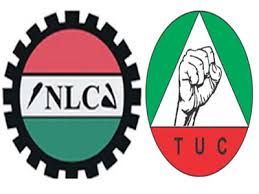Nigeria Labour Union and Trade Union Congress and other stakeholders in Borno state have attributed their inability to scrutinize and track government projects to the unavailability of government budgets in public domain.

The stakeholders made this known in a communique delivered at the end of a one day townhall with Borno state Labour and Trade union leaders themed; PIONEERING ACCOUNTABILITY MOVEMENT, organised by Peering Advocacy and Advancement Centre In Africa, PAACA, weekend in Maiduguri.
According to PAACA the townhall meeting was aimed at stimulating accountability movement amongst the unions in the state, by lending their voice, numbers and mass action in demand for transparency and accountability on project implementation within their communities.
However, far reaching discussions, observations and resolutions were made by the participants of the meeting which were no fewer than 12 unions.
Discussions:
1. The discussion focused on social audit as the most impactful anti-corruption approach
and the most effective way for the organized unions in Borno state to carry out social
audit. Participants agreed that when implemented, it would help in promoting
accountability and transparency especially at the grassroots.
2. Participants deliberated a community-led process of reviewing official documents would
determine whether public expenditure and service delivery outcomes reported by the
government really reflect the public money spent.
3. Possible ways the union can work together towards increasing transparency and
accountability in governance; a network of active members was considered to champion
public demand of accountability in the state.
Participants at the town hall observed the following:
1. The government budgets are not available in the public domain for Labour unions, Trade
Unions and members of the public to scrutinize and track government projects.
2. The government projects in most communities do not have the involvement of relevant
stakeholders – labour unions, religious leaders, traditional rulers, students and youth
associations etc. and are therefore mostly unimportant to the community.
3. Details of contracts are not made public, which means contractors for certain projects
are not known and cannot be identified to be held accountable for their inability to
deliver on project implementation.
4. Misappropriation and misapplication of approved funds by governments at all levels is a
reoccurring decimal in government contracts.
5. Substandard materials for project implementation are the norm due to lack of
monitoring by stakeholders to ensure they meet required standard.
6. Political interference and considerations when sighting projects in specific communities
are inhibiting progress and fueling corrupt acts.
7. Getting information from government offices is a major challenge as government
business is usually done in secrecy.
8. Mobilization of community leaders is a challenge because the leaders do not want to be
seen as confrontational towards the government.
Following the discussions and observations, the following resolutions were adopted:
1. PAACA inaugurated a Network of Trade and Labour Union Leaders against Corruption,
co-chaired by the NLC and TUC state chairmen to ensure that social audit begins in the
state with union members driving the initiative.
2. Initiate partnerships between government officials, labour leaders and community
leaders for effective harmonization of government projects that will be beneficial to the
community.
3. Ensure access, participation, monitoring and tracking of government budgets as a way
of holding government officials accountable.
4. Form or join existing community associations as an organized pressure group to demand
for accountability from government officials.
5. Collaborate with policy stakeholders to ensure that projects are properly sighted, well
executed, given to verifiable and competent contractors and not politically influenced.
6. Organize oversight assessment by visiting project sites to ensure all specifications are
met and adhered to.
7. Pay advocacy visits to communities to rally support and sensitize members of the
community to ensure budgeted projects are implemented.
8. Ensure all government projects in all communities should have the involvement of
stakeholders – labour unions, religious leaders, traditional rulers, students and youth
associations etc.
9. Initiate partnerships with the media to ensure that proper coverage is given to areas
where government officials failed to perform their duties or provided sub-standard
services to the people.
10. Organize protests where all avenues of communication and negotiations have been
exhausted.
The communique was signed by Borno State Chapters of: Nigeria Labour Congress, Trade Union Congress, National Association of Nigeria Nurses and Midwives, Medical and Health Workers Union of Nigeria, Nigeria Civil Service Union, Nigeria Bar Association.
Others include Senior Staff Association of Nigerian Polytechnics, Non-Academic Staff Union of Educational and Associated Institutions, Nigeria Union of Teachers, Amalgamated Union of Public Corporation Civil Service and Recreational Services Employees, National Union of Road Transport Workers and National Union of Printing Publishing and Paper Product Workers.
About Author
You may also like
-
Anti-Corruption: Whistleblowing Law Long Overdue – Activists, Lawyers Counsel FG
-
N12bn Bribery Scandal: EFCC Urged To Prosecute Indicted Nigeria Customs Officials
-
NEIP: ICPC Harps On Collective Fight Against Corruption
-
ICPC Says Constituency Projects Tracking Declining Corruption, Urge Nigerians To Report Infractions
-
Birth Certificates: Corruption Unabated in Registration Centers — FG Alerted

